![]()
Wed, April 6, 2011 | The Meir Amit Intelligence and Terrorism Information Center
Hamas says Goldstone’s “Reconsideration” is Surrender to Israeli-American Pressure
Hamas responded to Goldstone’s “reconsideration” by labeling it surrender to Israeli-American pressure, in sharp contrast to its enthusiastic reception of the original Report and its acceptance by the UN. Hamas’ central claim is the Report cannot be changed because it is a UN report and no longer Goldstone’s “personal property.”
Overview
Hamas (and the Palestinian Authority) spokesmen were severely critical of Judge Richard Goldstone’s op-ed “reconsideration” article in the Washington Post, representing it as a surrender to pressure from Israel, the United States and the Jewish lobby. Their central claim was that the Report could not represent Goldstone’s personal position because it had many authors and turned into a United Nations document. Hamas spokesman Sami Abu Zuhri even appealed to the United Nations “to rescue the Goldstone Report.”
The initial responses from Hamas and Palestinian Authority spokesmen to the op-ed article and the public discourse it provoked indicate, in our assessment, that Hamas is afraid the gains it reaped from the Goldstone Report will be eroded. The responses also indicate an attempt to prevent Israel from benefitting from the article by emphasizing that the Report is a UN document, neutralizing Goldstone’s personal role.
When the Goldstone Report appeared it was greatly praised by Hamas spokesmen, who saw it as an opportunity to reinforce the Israel’s international image as a committer of “war crimes” against the civilian population in the Gaza Strip. Hamas regarded the Report as having created the potential for a long process of dealing with bringing senior Israeli figures to trial, tying Israel’s hands in future military operations in the Gaza Strip and above all, stoking the fires of the campaign to delegitimize Israel in the eyes of Western countries. On the other hand, Hamas, which carried out rocket attacks against Israeli civilians during Operation Cast Lead (and continues to do so), and which located its military networks within the civilian population (and continues to do so), was not required by the Goldstone Report to bear the responsibility for its actions.[1]
Responses to the Goldstone Reconsideration
Hamas
Hamas spokesmen were highly critical of the Goldstone article, accusing him of surrendering to pressure from Israel, the United States and the Jewish lobby. They said Goldstone’s article would not change the Report, as it was no longer his “personal property” but rather a UN document:
1) Salah al-Bardawil, head of Hamas’ propaganda department, said that Hamas regarded the article as Goldstone’s surrender to pressure. They claimed his “reconsideration” could not erase the “slaughter” of hundreds of Palestinians by Israel and the illegal use of weapons against Palestinians. He added that the Report could not be turned by Goldstone into a vehicle to express his personal opinion, and said that Hamas has given the Goldstone Mission a full report while the IDF had refused to cooperate. He also accused the Palestinian Authority of not letting Hamas represent itself (Al-Jazeera TV, April 3, 2011).
2) Yousef Rizka, political advisor to the de facto Hamas administration, said Goldstone’s article was part of a campaign planned by Israel in collaboration with the United States to prevent the United Nations from adopting the Report. He appealed to the Arab-Muslim countries to oppose Israel’s media campaign to “fool people into thinking Goldstone changed his mind about the Report.” He said Israel was plotting with the United States and other countries to keep the UN from adopting the Report, adding that the Israeli reports about the article did not present the truth, and that Goldstone still said the Israeli army killed civilians (Hamas’ Safa News Agency, April 3, 2011).
3) Hamas spokesman Sami Abu Zuhri said the Goldstone “reconsideration” surprised him, as did the statement that it accepted the Israeli version. He appealed to the UN “to rescue the Goldstone Report” (Hamas’ Palestine-info website, April 3, 2011).
The Palestinian Islamic Jihad
Ahmad al-Mudallal, described as a senior leader of the Palestinian Islamic Jihad, said that the Goldstone article was the product of the Jewish lobby, an attempt to extricate Israel from its international isolation (PIJ’s Paltoday website, April 3, 2011).
The Palestinian Authority
Sources within the Palestinian Authority also reacted strongly to the article, claiming that the fact that Goldstone had reconsidered did not absolve Israel of blame or cancel its so-called “war crimes:”
1) The PLO’s Executive Committee issued a press release expressing sorrow that Goldstone had released Israel from responsibility for its deeds and condemning the “unjust motives” behind Goldstone’s reconsideration. According to the announcement, the reconsideration did not change the Report’s high degree of credibility, which was based on reliable statements and investigations (Wafa News Agency, April 3, 2011).
2) PA spokesman Nabil Abu Rudeina said that whether Goldstone reconsidered or not, the fact was that Israel had committed “war crimes.” He added that the Palestinian Authority would not stop its efforts to demand accountability from whose who had committed the “war crimes” during Operation Cast Lead. He said that the Report was a UN report and that the UN had to continue its investigation to arrive at the truth (Wafa News Agency, April 3, 2011).
3) Yasser Abd Rabbo, chairman of the PLO’s Executive Committee, said that Goldstone did not have the right to reconsider because it was not a matter for one person. He added that the Report was the product of the committees and organizations which had investigated the events (Voice of Palestine Radio, April 3, 2011).
4) Nabil Shaath, a member of the Fatah Central Committee, said that Goldstone had not withstood the terrorism exerted on him and had been forced to surrender. He said he was sorry that a respected personality such as Goldstone had surrendered to the “Israeli terrorism” directed against him since the publication of the Report. He also said that Goldstone had been ostracized by religious, political and social forums around the globe (Al-Ayam, April 2, 2011).
Appendix
Hamas Response to the Goldstone Report, November 2009
When the Goldstone Report was issued and adopted by the UN General Assembly on November 5, 2009, the Hamas’ response was enthusiastic. Hamas spokesmen stressed three central points:
1) Hamas represented the UN’s adoption of the Report as a condemnation of Israel and an achievement for the Palestinians: Hamas spokesman Sami Abu Zuhri said that it was an important achievement for Hamas because it was the first time Israel had suffered broad international condemnation for its “war crimes” (interviewed by the BBC in Arabic, November 6, 2009). Muhammad Nizal, a member of Hamas’ political bureau, said that the General Assembly’s acceptance of the Report was “support for the Palestinian cause, justice and human rights” (Radio Damascus, November 6, 2009).
2) Hamas was not worried by the demand that the Palestinians also conduct an investigation: That was because the Palestinians were the “victims,” according to Hamas, of “crimes” (and thus were the accusers and not the accused). Hamas was not worried by the Israeli accusations that it had used civilians as human shields during Operation Cast Lead because the Goldstone Report had directed that accusation against Israel, not Hamas. He said that Hamas had not been accused of firing rockets into Israel because the Goldstone Report referred to the “resistance” [i.e., the terrorist organizations] only generally, and not Hamas in particular (Sami Abu Zuhri interviewed by the BBC in Arabic).
3) The Hamas administration was preparing “for an investigation:” The de facto Hamas administration said it was appointing “an official committee” of ministers and experts. The committee would operate in consultation with “human rights experts,” both local and international (Sami Abu Zuhri interviewed by the BBC in Arabic, November 6, 2009).[2]
Taher al-Nunu, spokesman for the de facto Hamas administration, said that the acceptance of the Report by the UN General Assembly would lead to legal action, which in turn would lead to the Israeli leadership’s (“the occupation leadership”) being tried for “war crimes.” He said the “battle” was not over and that Hamas would continue its contacts with the Arab-Muslim countries to bring the “occupation leadership” to trial in every country where the law allowed it (Al-Quds TV, November 6, 2009). Muhammad Nizal, of Hamas’ political bureau, said that the General Assembly’s decision was a very important step in bringing “the Israeli criminals and terrorists” at both the political and military level to trial (Radio Damascus, November 6, 2009). Riyad Mansour, Palestinian Authority permanent observer in the UN, said that the General Assembly’s decision had begun a practical process which would only come to an end when the “Israeli criminals” who had carried out “war crimes” during Operation Cast Lead were brought to trial (Press TV, Iran, November 6, 2009).[3]
Notes:
[1] In the article in the Washington Post, Goldstone claimed that “our report marked the first time illegal acts of terrorism from Hamas [i.e., rocket fire] were being investigated and condemned by the United Nations” In effect, the Goldstone Report did in fact state that the rocket fire constituted a “war crime” but did not indicate Hamas or any other terrorist organization as responsible for it.
[2] In his op-ed article Goldstone stated that Hamas did not, in fact, appoint an investigatory committee. He said that ” Some have suggested that it was absurd to expect Hamas, an organization that has a policy to destroy the state of Israel, to investigate what we said were serious war crimes. It was my hope, even if unrealistic, that Hamas would do so, especially if Israel conducted its own investigations.”
[3] For further information, see the November 8, 2009 ITIC bulletin, “Hamas expresses satisfaction with the UN General Assembly decision regarding the Goldstone Report”.
The Intelligence and Terrorism Information Center’s Response to the Goldstone Report
Mon, April 4, 2011 | The Meir Amit Intelligence and Terrorism Information Center
Overview
In March 2010 the ITIC issued a comprehensive, in-depth report which examined how the Goldstone Report related to the terrorist threat facing Israel. The two-volume, 345-page (English version) report was entitled “Hamas and the Terrorist Threat from the Gaza Strip: The Main Findings of the Goldstone Report versus the Factual Findings.”
The report was based on a wealth of intelligence material supplied by the Israeli intelligence community and on open source information. It was posted on the ITIC website in Hebrew and English and disseminated to many thousands of subscribers, including many holding key positions around the globe. The Overview was translated into French, Arabic, Farsi, German and Russian.
The report received extensive media coverage in Israel and worldwide. Not only have its findings and conclusions not been disproved, but on the contrary, additional information gathered during the past year has only served to reinforce some of its main theses and conclusions indicating the Goldstone Report’s fundamental methodological faults and deep biases.
On April 1, 2011, the Washington Post published an op-ed article by Judge Goldstone in which he reconsidered some of the Report’s main conclusions and said that if he had known then what he knew now, “the Goldstone Report would have been a different document.” [1]
Following his article and the renewal of the discourse on the Report, we are reposting the main findings of the ITIC Response in English as well as other relevant languages. In addition, we have appended updated information gathered during the past year. (You can download the full english version of the report here).
Updates to the ITIC Response to the Goldstone Report
The following updates are based on information gathered during the past year:
A) Hamas publicly admitted that most (60%) of the Palestinians killed and wounded in Operation Cast Lead were terrorist operatives involved in the fighting and not civilians. Fathi Hamad, interior minister of the de facto Hamas administration, was interviewed by Al-Hayat and quoted by Hamas’ Felesteen on November 1, 2010. He said that 709 operatives involved in the fighting from the military-security networks of Hamas and the other “factions” were killed. Most of them were from Hamas’ Izz al-Din al-Qassam Brigades, and some were “security personnel.” The number corresponds to the findings of the examination carried out by the Israeli security establishment and is significantly higher than the distorted statistic Hamas and the other terrorist organizations previously issued. The ratio between terrorist operatives (60%) and civilians (40%) killed in the densely-populated Gazan arena confirms the Israeli claim of the IDF’s systematic effort to reduce the number of civilian Palestinian casualties.[2] It also refutes the data provided by Hamas and the human rights organizations operating in the Gaza Strip, used by the Goldstone Report to assail Israel (which claimed that only one of every five Palestinians killed was a “fighter.”)
B) Hamas admitted that terrorist operatives were in police headquarters attacked by the IDF. In the November 1 interview with Al-Hayat quoted by Felesteen, Fathi Hamad admitted that on the first day of the operation, when Israel attacked the police headquarters, 250 operatives belonging to Hamas and other [terrorist] organizations were killed. That corresponds to information in the ITIC response to the Goldstone Report emphasizing that Hamas makes no distinction between its military and security wings. It also confirms the ITIC information that Hamas and other terrorist operatives were present when the IDF attacked the police headquarters. Fathi Hamad’s statements refute the Goldstone Report’s conclusion that the Hamas police force is a civilian body and therefore the police killed by the IDF were civilians and not “fighters.”
C) Rocket and mortar shell fire deliberately targeting civilian population centers in Israel continues. According to the Goldstone Report, the fire constitutes a war crime. According to the Judge Goldstone’s op-ed article, Hamas and the other terrorist organizations (which the Report did not hold responsible for rocket and mortar shell fire) “have not conducted any investigations into the launching of rocket and mortar attacks against Israel”[3] — as demanded by the UN. Moreover, for the past two years Hamas has continued targeting Israeli population centers (although to a lesser degree than during the period preceding Operation Cast Lead). In the two years since Operation Cast Lead 299 rocket and 266 mortar shell hits have been indentified in Israeli territory, disrupting the daily lives of the civilian population in Israel’s south. In March 2011 rocket and mortar shell fire escalated both quantitatively and qualitatively (rockets hit Israeli cities far from the Gaza Strip, such as Beersheba and Ashdod). In addition, Hamas and the other terrorist organizations have invested considerable efforts to improve their rocket and mortar shell capabilities, including equipping themselves with long-range rockets which can reach the center of the Israel.[4]
D) Iran and Syria continue their massive support of the military buildup of Hamas and the other terrorist organizations in the Gaza Strip, including rocket capabilities. That ongoing support, which was completely ignored by the Goldstone Report, continued and accelerated during the past year. Iran, which regards the military buildup of the terrorist organizations as a tool for achieving its strategic goals, plays a central role in the rebuilding and upgrading of the organizations’ military-terrorist capabilities. Iran does so through an extensive smuggling network by sea, air and overland. Among the weapons Iran supplied to the terrorist organizations were Fajr-5 rockets, which have a range of 75 kilometers[5] (enabling them to reach the center of Israel) and other advanced weapons (including anti-tank missiles). However, Israeli recently intercepted an arms shipment aboard the M/V Victoria destined for the terrorist organizations, containing, inter alia, C-704 anti-ship weapons manufactured in Iran. Iranian support includes training, help in the development and independent manufacture of weapons, funds for Hamas and political propaganda support.
E) The terrorist organizations have improved the battle tactic of using civilians as human shields. During Operation Cast Lead Hamas extensively used civilians as human shields, posing severe moral and operational dilemmas for the IDF. The Goldstone Report either ignored the vast amounts of information indicating Hamas’ use of the civilian population as human shields or minimized its extent and importance. For Hamas, the tactic proved itself. Thus, implementing the lessons learned from Operation Cast Lead included, in our assessment, improving the tactic of integrating its terrorist operatives and military facilities into the civilian population and institutions (i.e., health and educational institutions and mosques).
Notes:
[1] “Reconsidering the Goldstone Report”.
[2] Hamas Minister: 700 Hamas militants were killed during Operation Cast Lead.
[3] “Reconsidering the Goldstone Report”.
[4] For further information about the military buildup in the Gaza Strip, see the March 3, 2011 ITIC bulletin, Terrorism from the Gaza Strip since Operation Cast Lead: Data, Type and Trends.
[5] 46.5 miles. Note: The distance between Washington DC and Baltimore, Maryland, for example, is about 40 miles.



 RSS
RSS

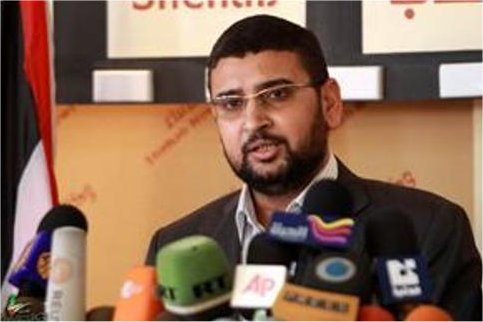
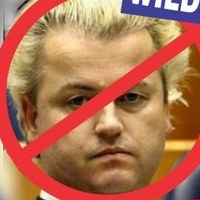
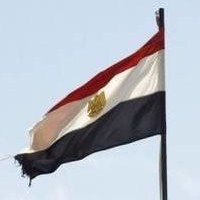
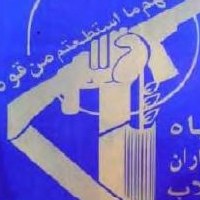

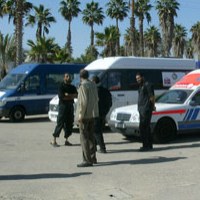




#Hamas says #Goldstone’s “Reconsideration” is Surrender to Israeli-American Pressure | #Israel http://j.mp/emPHyx
RT @CrethiPlethi: #Hamas says #Goldstone’s “Reconsideration” is Surrender to Israeli-American Pressure | #Israel http://j.mp/emPHyx
Hamas says Goldstone’s “Reconsideration” is Surrender to Israeli-American Pressure | Middle East new http://fb.me/D435eu2a
RT @CrethiPlethi: Hamas says Goldstone’s “Reconsideration” is Surrender to Israeli-American Pressure | Middle East new http://fb.me/D435eu2a
RT @CrethiPlethi: #Hamas says #Goldstone’s “Reconsideration” is Surrender to Israeli-American Pressure | #Israel http://j.mp/emPHyx